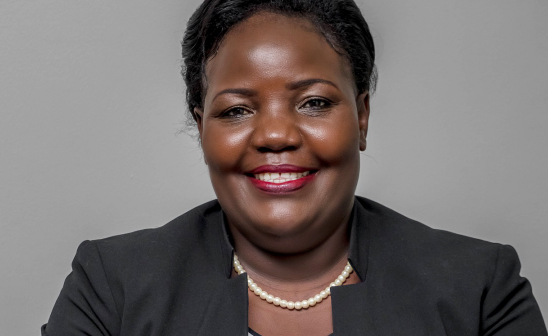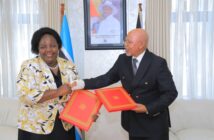Uganda’s power sector regulator, Electricity Regulatory Authority (ERA), has for a fourth consecutive time come atop other regulators on the continent in this year’s African Development Bank’s Electricity Regulatory Index (ERI).
The number of African countries ranked increased from 36 in 2020 to 43 in 2021. Dr Kevin Kariuki, the African Development Bank’s Vice President for Power, Energy, Climate and Green Growth, said the increase in the number of participating regulators showed the desire for nations to improve service delivery in the power sector. “The unprecedented participation of so many countries shows the commitment to strengthen the countries’ regulatory environment with a view to improving the performance of the respective electricity sectors,” said Dr Kariuki.
The 2021 edition of the ERI report was the fourth, meaning that Uganda, thanks to ERA, has won all the four times the rankings have been conducted. Even when seven more countries were ranked, no new comer could match ERA.
This is proof to the fact that Executive Director Eng Ziria Tibalwa Waako, Board Chairperson Dr Sarah Wasagali Kanaabi, Ruth Nankabirwa, the Minister of Energy and Mineral Development, and the entire President Museveni Government are doing a very good job.
The index measures the level of development of electricity sector regulatory frameworks in African countries and the capacity of regulatory authorities to effectively carry out their relevant functions and duties. The ERI is made up of three pillars or sub-indices: the Regulatory Governance Index (RGI); the Regulatory Substance Index (RSI); and the Regulatory Outcome Index (ROI). ERA won in all the three indices. In overall performance, Uganda was followed by her East African neighbours of Kenya and Tanzania, then Namibia and Egypt, completing the top five in the ERI 2021. Uganda scored 0.823, Kenya 0.688, Tanzania 0.669, Namibia 0.663, and Egypt 0.609. The ERI scores were calculated based on responses to comprehensive surveys distributed to electricity sector regulatory institutions, and utilities in African countries with confirmed regulatory authorities.
Thanks to efforts by Waako, Kanaabi, Nankabirwa and Museveni in streamlining the power sector, Uganda and all the top five countries were praised for having well developed electricity regulatory frameworks. ERA and all the top ranked regulators were saluted for having the capacity and for exercising the necessary regulatory oversight and authority on the regulated entities and on the sector, which in turn helps them to achieve measurable outcomes.
Wale Shonibare, the African Development Bank Director for Energy Financial Solutions, Policy and Regulation, commended Uganda for her performance. “Uganda topping the rankings consecutively for four years comes as no surprise to many, as the regulator spends significant time on consultation and analysis, including regulatory impact assessments of key interventions and follow-through to ensure full implementation,” said Shonibare.
Eng Abel Didier Tella, the Director General of the Association of Power Utilities of Africa, said: “It is interesting that the utilities in most of the top-performing countries in the Electricity Regulatory Index are listed on their national stock exchanges, which requires compliance with transparency in information sharing and good governance practice.”
MORE IN THE ERI REPORT
Launched in the year 2018, the Electricity Regulatory Index has highlighted aspects of electricity regulation that need reform, identified appropriate areas for intervention, and encouraged stakeholders to be proactive in addressing challenges. Since then, the index has been widely adopted by regulators and other stakeholders across the continent as a benchmark for the regulatory environment as well as for ongoing reforms.
According to the report, the average performance on economic regulation has continued to decline since 2018. A third of countries surveyed indicated they lack methodologies to determine tariffs; another 40 per cent rely on tariff methodologies that do not include key attributes such as automatic tariff adjustment and tariff indexation mechanisms and schedule for major tariff reviews.
The ERI report notes that most of the African countries have room for improvement in the regulatory independence sub-indicator. In 93 per cent of the sampled countries, the report indicates that governments, and stakeholders exercise influence over regulatory authorities. In terms of regulatory substance, participating countries scored lowest on adequacy of their tariff setting and frameworks, as well as licensing framework.



